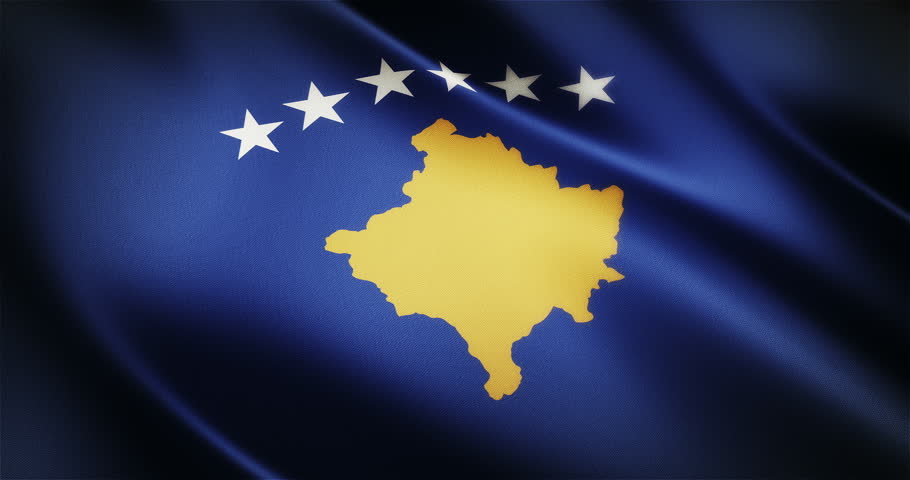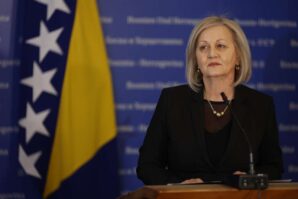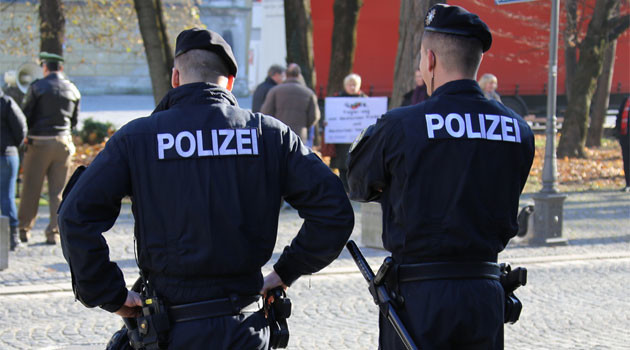
A year has passed since the early steps in setting up the Respiratory Centre – Department for Treatment of Severe Cases of COVID-19 Infection at the University and Clinical Centre in Tuzla. Working 24/7, along with many unknowns brought about by the pandemic, the work of medical professionals has been greatly facilitated by medical and protective equipment donated by the European Union as part of BiH’s coronavirus assistance programme implemented by the United Nations Development Programme (UNDP) in Bosnia and Herzegovina.
The leading experts from the Public Health Institute of the Tuzla Canton and the University and Clinical Centre attest to that. Vital function monitors, PCR devices and a nucleic acid extractor that significantly speeds up the process of processing patient swabs, five respirators and two ultrasound devices are but few of the donated medical and protective equipment worth more than one million BAM.
Equipment donated by the European Union within the assistance programme to BiH in the fight against coronavirus covers health institutions across the board: thirteen health centres in the Tuzla Canton, general hospital, the University and Clinical Centre and the Public Health Institute.
“It was necessary to form teams and organise their work, but also to secure equipment needed for the treatment of patients in critical condition,” describes Doctor Maida Mulić, one of the leading experts at the Tuzla Public Health Institute, and a member of the Cantonal Crisis Staff, in recalling one of the early assignment of the Cantonal Crisis Staff.
Early months of the fight against the coronavirus were marked by great uncertainty, fear, high mortality rate and a lack of additional resources, explains Doctor Mulić.
The Public Health Institute took part in planning and facilitating hospital capacities, setting up quarantine and providing support to primary health care institutions.
Today, we seemingly know far more about the virus; yet, healthcare professionals are aware of the many challenges ahead, as is society as a whole.
“Problems are numerous: insufficient and exhausted staff, delays in the execution of public procurement, lack of tests, delays in the implementation of immunisation programmes, lack of oxygen at the time of greatest need, resistance of citizens when it comes to compliance with orders and measures,” said Doctor Mulić.
Head of the Microbiology Department with the University and Clinical Centre in Tuzla, Professor Nijaz Tihić points out that this institution has been working continuously since March last year so that all tested patients have results within 24 hours.
“At one point, we had large number of samples coming in daily, while the results were delayed by several days. Then we received the first donations of equipment from the European Union – two real-time PCR devices and one device for automatic extraction of viral RNA.”
Professor Tihić explains that this is high-quality equipment that allowed for an increase in the capacity of daily testing, faster delivery of results, and timely therapy and treatment. Biologists, medical-laboratory diagnostic engineers and laboratory technicians are deployed in four teams at the Microbiology Department of the University and Clinical Centre Tuzla, and work continuously to fully meet the requirements imposed by the pandemic.
Some employees contracted the infection, but no one was infected during the microbiological processing of the tests, says the Head of the Institute.
“It was extremely important for us to provide protection for the staff from a possible infection in the laboratory“, stressed Professor Tihić.
An inevitable link in the care of patients with a more severe clinical picture is the Anaesthesiology and Resuscitation Clinic at the University and Clinical Centre in Tuzla, headed by Doctor Jasmina Smajić, a professor.
“In a situation when we have no information on the number of new incoming patients or how many will require ICU treatment, any equipment for patients in critical conditions is vital,” explains the Head of the Clinic, Professor Smajić.
Therefore, donation of the European Union is exceptionally important, she believes, in providing devices for anaesthesia, mechanical ventilation and monitoring of vital parameters, which is of great help given the large number of patients treated in ICU.
With many unknowns about the disease itself, specific working conditions further complicate the entire medical treatment process.
“Before we go in to check on a patient, we must put on personal protective equipment and stay fully geared up for some time in continuity. There is a clear procedure and sequence in removing the PPE, followed by strict application of disinfection and decontamination methods”, explains Professor Smajić.
And that is just a small part of the new medical normalcy which is particularly challenging for anaesthesiologists.
“COVID-19 is a disease with extremely unpredictable clinical course, which is a great challenge that requires us to constantly gather new knowledge about the disease itself,” added Professor Smajić, emphasising the importance of exchanging information with peers from the surroundings so that patients in Tuzla would receive the most adequate treatment available.
Director of the University and Clinical Centre in Tuzla, Professor Vahid Jusufović pointed out that the donated medical and protective equipment improved working conditions and also safety for both employees and patients.
“The European Union has recognised the need and has shown readiness to help on several occasions so far,” said the Director of the University and Clinical Centre, noting that medical and protective equipment worth more than a 1.2 million BAM from the EU funds has been provided for the Tuzla Canton in 2020.

















